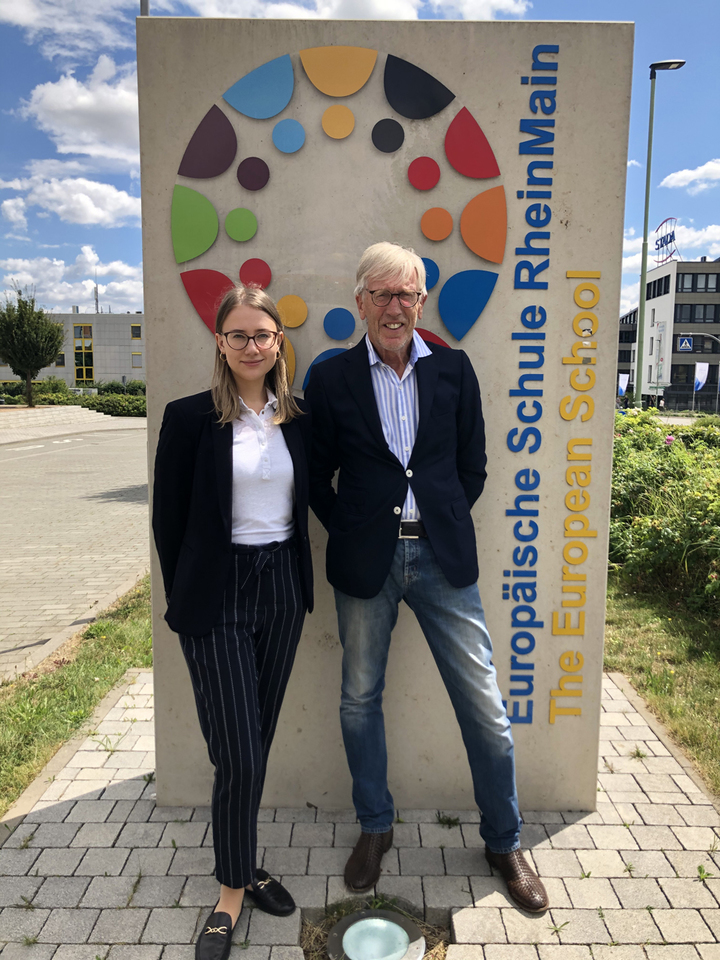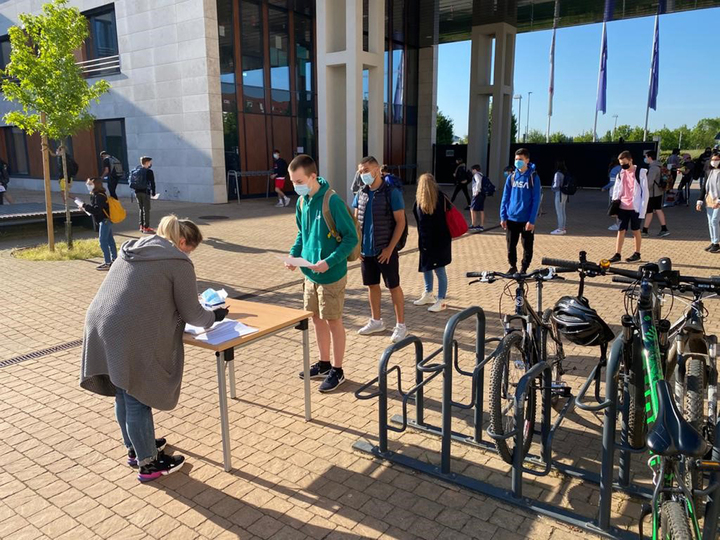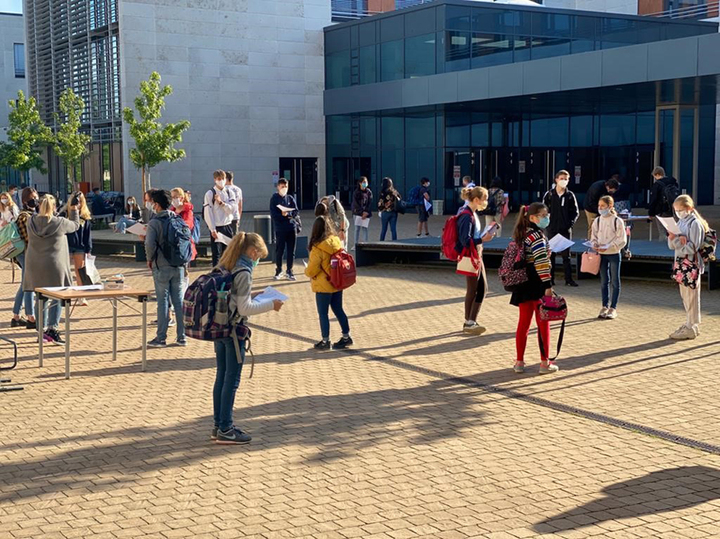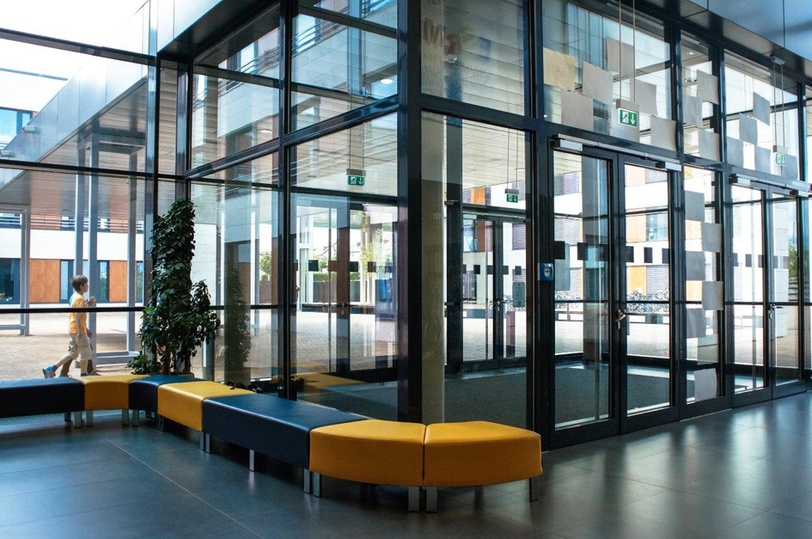“We were all united by the feeling that we are in the same boat …”
Probably, most people, recalling their school years, would agree with the words of the French prose writer and philosopher Albert Camus: “School prepares us for life in a world that does not exist.” However, time takes its toll, and recent events in the world made us look differently at many processes, including those related to the school education system. The director of the international school told our editorial office about what is really necessary to prepare children for life in the real world, about European principles. Europäische Schule RheinMain in Bad Vilbel Tom CILSTRA…
─ It’s no secret that the partial lockdown, the termination of the work of public and cultural institutions, as well as the transition to distance learning came as a complete surprise to everyone. When, given your status as a European school, when did it become clear to you that the situation with the coronavirus was becoming more and more serious?
─ If we talk about the status of our school, it is a European educational institution, whose graduates receive a European bachelor’s degree, which gives the right to enter the best universities in many countries of Europe and the world without passing additional exams. We teach in both German and English, which makes the school attractive not only for residents of Frankfurt and the entire region, but also for students from other countries. Children of 62 nationalities study within our walls, including from Russia, Ukraine, Kazakhstan and other republics of the former USSR. Their parents work in the diplomatic corps service or in some other areas.
We receive all information about the latest events in the world from two main sources. First of all, of course, from Brussels, where the main coordinating office of all 32 European schools is located. Thanks to such an internal system, we saw before others what was happening with our colleagues in Italy and Spain, where the situation was becoming more serious every day. When there was an outbreak of the virus in the Alps, we were immediately notified of it. Thus, already in the first days of March, we began to think about possible ways of development of events and alternative perspectives associated with training. On March 13th, the state government of Hesse – our second source of information on all important issues – informed us to leave the school premises. When I announced this to my colleagues, many of our 180 teachers reacted very emotionally to the prospect of parting with their students, some even had tears in their eyes.

Editorial journalist Polina Arsentieva and director of the international school Tom Tsilstra.
Further, the situation required us to create a well-functioning mechanism that would allow teachers to prepare for lessons at home. In parallel with this, a whole team of technicians established communication between teachers and students. After a short time of such intense work, remote contact was established between both parties, so that all the lessons took place at the right time. Teachers sent daily reports on the work done, parents saw that the system was functioning effectively. I would like to note that our reaction during the crisis did not go unnoticed and today the number of those wishing to study at our school is greater than ever.
After the introduction of partial indulgences, the rest of the year we studied in a new format: every school day, some of the children were in the classroom (of course, we took care of all hygiene and distance measures), the second one connected from home via video link. In general, it was a difficult period, but the teachers went on summer holidays with a feeling of complete satisfaction that they had managed to do the maximum possible for their students. It’s nice that the parents think the same way.
Taking into account the threat of the second wave of coronavirus, I asked the teachers to be in Germany by August 12, despite the fact that classes at the school will start only in the first week of September. We need to be as prepared as possible for any development of events.
─ Based on your own experience, how would you assess the actions of the authorities in the early stages of the pandemic? According to a number of experts, the necessary measures were introduced with a delay of two weeks.
─ As a person who not only saw the situation from the inside, but also actively participated in it, I can say that the government of Hesse has shown itself to be very worthy. Everything was done as quickly as possible. Of course, there is always a certain backlash of delay – 3-4 days, but taking into account the federal structure of Germany, each land could react to what was happening much faster than it usually happens within a centralized state. Although even here, many people continue to underestimate the seriousness of this virus.

─ How did the parents of your students react to what was happening, especially at the initial stage of the pandemic? Have you noticed any differences in your perception of the situation?
─ Probably not. From the very beginning, it was important for us that all participants in the process think in the same direction and have sufficiently complete information. So every four days, I wrote emails to my parents telling them what was going on. In addition, we had videoconferences twice a week, during which moms and dads could ask any questions or express their concerns. In my opinion, in such situations, communication is the most important thing. We were all united by the feeling that we were in the same boat; this a priori helped to overcome difficulties.
─ Which of the restrictions that have been introduced have had the biggest impact on you?
─ First of all, it is that some of our teachers were at risk: someone was in a situation, someone has asthma or other chronic diseases. And overnight we had 20 fewer teachers. But we must pay tribute to the children, they behaved beautifully. For example, elementary school students made a book about how their lessons went during quarantine. The secondary school is preparing a similar book. I find this experience very interesting, because later students will remember this difficult time and the joint overcoming of all difficulties. Overall, I am very proud of our achievements. And although we have all learned a lot, I would like to think that the situation will not repeat itself, because the second time it will be difficult for me to inspire people to feats. It is impossible for any person to improvise endlessly and react to the situation. An end goal is always needed.

─ Returning to homeschooling, what difficulties did the students, their families and teachers face?
─ I was worried about many aspects, including technical capabilities. Fortunately, most parents were able to provide their children with everything they needed to participate in distance learning. For those who, for one reason or another, did not have such an opportunity, we transferred computers and invested in cameras, microphones, headphones and everything else. As for the new teaching format itself, not all students were able to master such a transition. Someone could not self-organize and therefore did not study so successfully during this period, someone had family circumstances, however, there were those for whom this form was practically ideal – for example, guys who like to work independently or are most willing do it in the evenings. In short, we all had to work hard.
─ What innovations of this period can become part of the standard educational process in the future?
─ What is worth seriously thinking about is self-study. In the case of distance learning, the school was forced to shift part of the responsibility for acquiring knowledge to the students themselves, and, by the way, this had a very positive impact on many. I think that in the future, such a practice may become part of the standard school process, for example, for students who have reached the age of 16. This will be a kind of university model.
─ Today, many experts say that the coronavirus pandemic will fundamentally change our lives and the educational system. What transformations seem most likely to you?
─ If we talk about our world as a whole, I hope that the positive changes in nature that we have seen in recent months will make people finally leave the environment alone and think about more prudent use of natural resources. However, I am not sure that everyone thinks about it.

─ They say school is a place where children are taught not only facts and theorems, but life in general. The past months have clearly demonstrated that our world is becoming more complex, and viruses and pandemics will remain an integral part of it. How can schools teach children to cope with the challenges of the new age?
─ If we talk about our school, it has always had a non-trivial approach to teaching. In other words, it is especially important for us what place the child occupies in the family, in society and in the world in general. When I was a schoolboy, we were taught encyclopedic facts, grammar, syntax. By the way, in many educational institutions to this day they adhere to a similar method. Students are given knowledge without being able to competently apply it in practice. Our teachers, for example, in language lessons, try to teach junior pupils communicative competence. Children 7-10 years old develop skills on how to behave in a group, how to make presentations for small and large groups. With the help of new technologies, we teach children to perceive language as a tool for communication.
It is extremely important for us whether the child knows how to take responsibility, how creatively does he think? Because only in the case of a positive answer, we understand that he will be ready to accept any challenge of this world. This approach to the school system is truly revolutionary. Unfortunately, in Europe, changes in this area are happening very slowly. Of course, the advantages of the traditional education system are obvious, since they allow you to easily determine the level of the child: who received excellent – talented, and those who are satisfactory – not very good. However, reality speaks of something else. There is a large percentage of those who did not have high marks at school, but in fact showed themselves to be much more competent in understanding their civic duty, in matters of their role in society and responsibility to others. Assessment reflects only part of the child’s personality, which is what we tell our students. And the fact that the teachers of the school see a personality in each student helps them find a competent individual approach to him. This technique gives excellent results and allows graduates to leave the walls of our educational institution as ready as possible for the real world.
Polina ARSENTIEVA.
Photos courtesy of an international school
Europäische Schule RheinMain g… Bad-Filbel…
Germany says this:
Germany: Sars-2 coronavirus vaccine expected at the end of the year
Germany: “Getting fans back to the stadium is not a priority”
Small business situation in Germany is gradually returning to normal
Germany: More young people are being infected with Covid-19